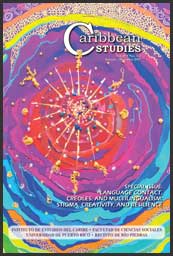Abstract
One of the common practices among some bilinguals constitutes codeswitching, which consists of the use of their two languages in the same portion of discourse without any change of interlocutor nor topic. This phenomenon occurs both in oral and written expression. There are studies on codeswitching from countries that foster Spanish-English bilingualism, such as several areas of the United States. In Puerto Rico, despite the contact between Spanish and English that is found in certain sectors of the population, this topic has received little attention. With hopes of expanding the horizons of this research, the present study examines the preferences of bilinguals living in Puerto Rico regarding different types of codeswitches, as well as their attitudes towards this phenomenon. The participants are students at the Río Piedras campus of the University of Puerto Rico and the data were collected by means of questionnaires. The findings on participants‘ preferences and attitudes were analyzed taking into account information on their acquisition, use of, and exposure to both languages. The results are discussed in light of previous studies on this bilingual practice (e.g., Belazi, Rubin and Toribio 1994; Dussias 2003; Guzzardo Tamargo 2012; Koronkiewicz 2014; Lipski 1978, 1985; Otheguy and Lapidus 2003; Pfaff 1979; Poplack 1980; Poplack, Pousada and Sankoff 1982; Timm 1975; Valdés Kroff 2016).Downloads
Download data is not yet available.

